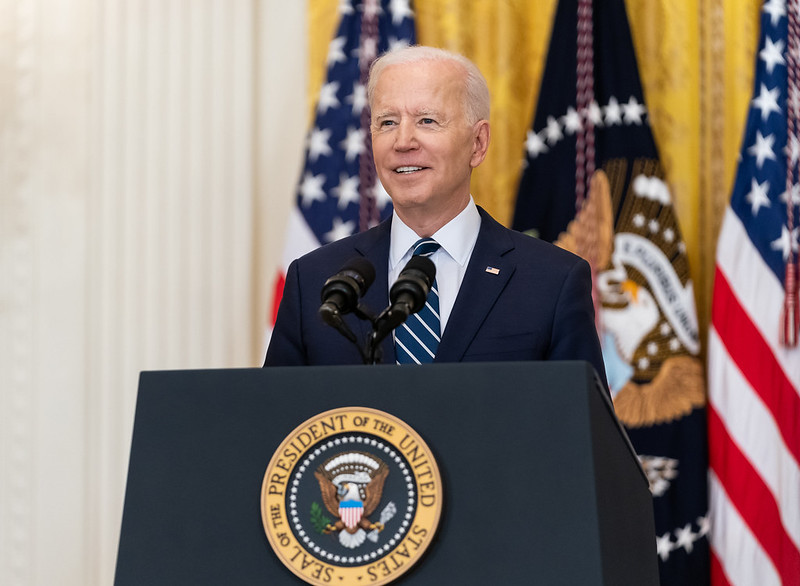8:30
Brief
News Briefs
No details yet on Biden conservation plan, but Republicans slam it as a ‘land grab’
Republicans on the U.S. House Natural Resources Committee on Tuesday previewed their objections to the Biden administration’s still-unreleased plan to conserve 30% of U.S. land and water by 2030.
President Joe Biden created what is commonly called the “30 by 30 plan” in a Jan. 27 executive order, but the administration hasn’t released details about how it will define protection or how the government would reach the goal. Committee Republicans complained Tuesday that those details were still lacking, but laid out the arguments they’ll likely use regardless of the details in the final plan.
The panel’s ranking member, Arkansas’ Bruce Westerman, said the forum was scheduled to closely follow the release of an administration report on the 30 by 30 plan that the executive order mandated be completed by April 27. That report has not been made public, leaving major questions about the initiative unanswered.
“The 30 by 30 initiative, while big and ambitious, presents us with a lot of unknown unknowns,” said Brian Yablonski, the president of the Property and Environment Research Center, a “free market environmentalism” think tank with ties to the libertarian Koch Brothers. “There’s obviously still a lot to sort out with the president’s eco moonshot.”
Attended only by Republicans and their invited witnesses, the forum was not an official committee event.
But it did provide a preview of the arguments Republicans are expected to deploy once the administration and its allies in Congress begin to push the 30 by 30 initiative in earnest.
The panel’s members worried that the government would rely too much on designating wilderness—the most aggressive form of federal protection—while Republicans would favor conservation on private lands that remained “productive.”
Westerman said “there’s a place for wilderness areas” but 30% of land was too much.
The administration has not indicated that it would only count land designated as wilderness toward the 30% goal. Most definitions of land protections include less stringent designations than wilderness.
The lack of details known about “the radical 30 by 30 land grab initiative,” as U.S. Rep. Lauren Boebert, (R-Colo.), dubbed it, did not stop members from confidently projecting what it would entail.
Boebert and U.S. Rep. Pete Stauber, (R-Minn.), were certain it would include violations of private property rights and government overreach.
“We know that the 30 by 30 initiative will trample on property rights and extort private lands,” Boebert said.
“As we know, President Biden’s 30 by 30 agenda means further extending federal control into our way of life,” Stauber said.
U.S. Rep. Yvette Herrell, (R-N.M.), said she thought it was a “comprehensive push to decarbonize” and an “unnecessary land grab.”
A spokesman for the committee’s Democratic majority declined to comment on the forum, saying it would be premature to talk about a plan that hasn’t been made public.
Representatives for the White House and the Interior Department didn’t return messages seeking comment.
The administration has said that the 30 by 30 goal is recommended by scientists to preserve health, food supplies and biodiversity. Biden has made climate change one of his core policy issues.
Our stories may be republished online or in print under Creative Commons license CC BY-NC-ND 4.0. We ask that you edit only for style or to shorten, provide proper attribution and link to our website. AP and Getty images may not be republished. Please see our republishing guidelines for use of any other photos and graphics.





